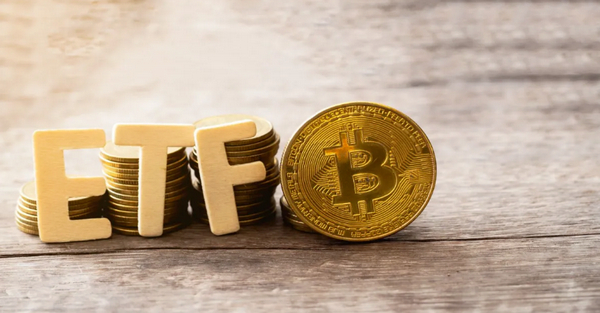-
 Bitcoin
Bitcoin $92,907.3993
5.19% -
 Ethereum
Ethereum $1,773.6075
11.96% -
 Tether USDt
Tether USDt $1.0003
0.04% -
 XRP
XRP $2.2012
5.11% -
 BNB
BNB $613.1115
2.03% -
 Solana
Solana $148.0402
6.68% -
 USDC
USDC $0.9999
0.00% -
 Dogecoin
Dogecoin $0.1802
11.63% -
 Cardano
Cardano $0.6805
8.50% -
 TRON
TRON $0.2471
0.15% -
 Chainlink
Chainlink $14.2297
7.66% -
 Avalanche
Avalanche $22.3365
11.21% -
 Sui
Sui $2.7351
21.64% -
 UNUS SED LEO
UNUS SED LEO $9.0751
-0.29% -
 Stellar
Stellar $0.2645
5.57% -
 Shiba Inu
Shiba Inu $0.0...01362
9.21% -
 Toncoin
Toncoin $3.1168
6.43% -
 Hedera
Hedera $0.1795
5.41% -
 Bitcoin Cash
Bitcoin Cash $356.7520
3.45% -
 Hyperliquid
Hyperliquid $18.9662
3.36% -
 Litecoin
Litecoin $83.8107
6.28% -
 Polkadot
Polkadot $4.0222
6.39% -
 Bitget Token
Bitget Token $4.6388
4.06% -
 Dai
Dai $0.9999
0.00% -
 Ethena USDe
Ethena USDe $0.9995
0.03% -
 Pi
Pi $0.6451
1.95% -
 Monero
Monero $226.6373
5.27% -
 Pepe
Pepe $0.0...09018
12.49% -
 Uniswap
Uniswap $5.8560
10.44% -
 Aptos
Aptos $5.2616
6.81%
can you buy bitcoin etf on vanguard
Despite the surging popularity of cryptocurrencies, Vanguard refrains from offering Bitcoin ETFs, citing concerns about regulatory ambiguity, price volatility, and its commitment to low-risk, diversified investment strategies.
Oct 23, 2024 at 08:22 pm

Can You Buy Bitcoin ETFs on Vanguard?
No, Vanguard currently does not offer any Bitcoin ETFs or any cryptocurrency-related investments.
Why Doesn't Vanguard Offer Bitcoin ETFs?
Vanguard has not publicly stated specific reasons for not offering Bitcoin ETFs. However, it is likely due to a combination of factors, including:
- Regulatory Concerns: The cryptocurrency market is still largely unregulated, which poses risks for investors. Vanguard may be cautious until clearer regulations are established.
- Volatility: Bitcoin and other cryptocurrencies are known for their extreme price volatility, which makes them unsuitable for conservative investment strategies offered by Vanguard.
- Investment Philosophy: Vanguard's investment philosophy emphasizes diversification and low-cost index funds. Cryptocurrencies do not fit into this philosophy, as they are speculative and high-risk assets.
Alternatives to Bitcoin ETFs on Vanguard
While Vanguard does not offer Bitcoin ETFs, investors can still gain exposure to cryptocurrencies through other means:
- Cryptocurrency Exchanges: Investors can buy and sell cryptocurrencies through cryptocurrency exchanges such as Coinbase or Binance.
- Grayscale Bitcoin Trust (GBTC): This is a publicly traded trust that invests in Bitcoin. However, it is not an ETF and is less liquid and transparent than an ETF would be.
- Other Cryptocurrency Funds: Some mutual funds and hedge funds have launched cryptocurrency funds, but these are typically not open to the general public.
Conclusion
Vanguard currently does not offer Bitcoin ETFs due to regulatory concerns, volatility, and investment philosophy. Investors who wish to invest in cryptocurrencies can explore alternative options such as cryptocurrency exchanges or GBTC.
Disclaimer:info@kdj.com
The information provided is not trading advice. kdj.com does not assume any responsibility for any investments made based on the information provided in this article. Cryptocurrencies are highly volatile and it is highly recommended that you invest with caution after thorough research!
If you believe that the content used on this website infringes your copyright, please contact us immediately (info@kdj.com) and we will delete it promptly.
- As Easter Week Continues, Tuesday Night Brings Another Stacked NBA Playoff Slate — and BetMGM Has Officially Upgraded Its CUSE150 Bonus Code to Match the Moment
- 2025-04-23 10:35:12
- Bitcoin Cash (BCH) Reverses From Critical Support, Targeting $480 and $500 Resistance
- 2025-04-23 10:35:12
- Nvidia Has Turned Out to Be One of the Hottest Stocks
- 2025-04-23 10:30:12
- Unstaked (UNSD) Price Analysis: Aptos (APT) Builds Utility—But Unstaked's 2700% Potential Steals the Best Long Term Crypto Crown
- 2025-04-23 10:30:12
- OM Drops 90%, LTC Holds Steady — Is BlockDAG's 10 CEX Listing Surge Setting the Stage for 100X Growth in 2025?
- 2025-04-23 10:25:12
- Hyperliquid [HYPE] has slightly paused its rapid price growth over the past 24 hours
- 2025-04-23 10:25:12
Related knowledge

What is the difference in returns between long-term holding of a Bitcoin ETF and holding Bitcoin directly?
Apr 09,2025 at 04:15am
When considering the difference in returns between long-term holding of a Bitcoin ETF and holding Bitcoin directly, it's essential to understand the nuances and factors that affect each investment option. Both approaches have their unique advantages and potential drawbacks, which can significantly impact the overall returns over time. Understanding Bitc...

How is the "roll cost" of a futures Bitcoin ETF generated?
Apr 08,2025 at 01:22pm
The 'roll cost' of a futures Bitcoin ETF is a critical concept for investors to understand, as it directly impacts the performance of the ETF. In this article, we will delve into the mechanics of how the roll cost is generated, exploring the underlying processes and factors that contribute to this cost. Understanding Futures ContractsFutures contracts a...

How can the premium or discount of a Bitcoin ETF be narrowed through an arbitrage mechanism?
Apr 09,2025 at 12:07am
Arbitrage mechanisms play a crucial role in narrowing the premium or discount of a Bitcoin Exchange Traded Fund (ETF). Understanding how these mechanisms work can provide valuable insights into the dynamics of Bitcoin ETFs and their relationship with the underlying asset. This article will delve into the specifics of how arbitrage can be used to align t...

What factors affect the bid-ask spread of a Bitcoin ETF?
Apr 08,2025 at 08:50pm
The bid-ask spread of a Bitcoin Exchange Traded Fund (ETF) is a critical metric that investors and traders closely monitor. It represents the difference between the highest price a buyer is willing to pay (bid) and the lowest price a seller is willing to accept (ask). Several factors influence this spread, and understanding them can help investors make ...

How is the seed capital of a Bitcoin ETF used?
Apr 10,2025 at 02:15pm
The seed capital of a Bitcoin ETF plays a crucial role in the establishment and operation of the fund. This initial investment is used to create the fund's underlying assets, manage operational costs, and ensure the ETF can start trading on an exchange. Understanding how this seed capital is utilized provides insight into the mechanics of Bitcoin ETFs a...

What is the difference between "physically backed" and "synthetic" Bitcoin ETFs in terms of holding assets?
Apr 10,2025 at 04:56pm
Bitcoin Exchange Traded Funds (ETFs) have become a popular way for investors to gain exposure to the cryptocurrency market without directly owning the underlying asset. There are two primary types of Bitcoin ETFs: physically backed and synthetic. Understanding the differences between these two types, particularly in terms of how they hold assets, is cru...

What is the difference in returns between long-term holding of a Bitcoin ETF and holding Bitcoin directly?
Apr 09,2025 at 04:15am
When considering the difference in returns between long-term holding of a Bitcoin ETF and holding Bitcoin directly, it's essential to understand the nuances and factors that affect each investment option. Both approaches have their unique advantages and potential drawbacks, which can significantly impact the overall returns over time. Understanding Bitc...

How is the "roll cost" of a futures Bitcoin ETF generated?
Apr 08,2025 at 01:22pm
The 'roll cost' of a futures Bitcoin ETF is a critical concept for investors to understand, as it directly impacts the performance of the ETF. In this article, we will delve into the mechanics of how the roll cost is generated, exploring the underlying processes and factors that contribute to this cost. Understanding Futures ContractsFutures contracts a...

How can the premium or discount of a Bitcoin ETF be narrowed through an arbitrage mechanism?
Apr 09,2025 at 12:07am
Arbitrage mechanisms play a crucial role in narrowing the premium or discount of a Bitcoin Exchange Traded Fund (ETF). Understanding how these mechanisms work can provide valuable insights into the dynamics of Bitcoin ETFs and their relationship with the underlying asset. This article will delve into the specifics of how arbitrage can be used to align t...

What factors affect the bid-ask spread of a Bitcoin ETF?
Apr 08,2025 at 08:50pm
The bid-ask spread of a Bitcoin Exchange Traded Fund (ETF) is a critical metric that investors and traders closely monitor. It represents the difference between the highest price a buyer is willing to pay (bid) and the lowest price a seller is willing to accept (ask). Several factors influence this spread, and understanding them can help investors make ...

How is the seed capital of a Bitcoin ETF used?
Apr 10,2025 at 02:15pm
The seed capital of a Bitcoin ETF plays a crucial role in the establishment and operation of the fund. This initial investment is used to create the fund's underlying assets, manage operational costs, and ensure the ETF can start trading on an exchange. Understanding how this seed capital is utilized provides insight into the mechanics of Bitcoin ETFs a...

What is the difference between "physically backed" and "synthetic" Bitcoin ETFs in terms of holding assets?
Apr 10,2025 at 04:56pm
Bitcoin Exchange Traded Funds (ETFs) have become a popular way for investors to gain exposure to the cryptocurrency market without directly owning the underlying asset. There are two primary types of Bitcoin ETFs: physically backed and synthetic. Understanding the differences between these two types, particularly in terms of how they hold assets, is cru...
See all articles























































































